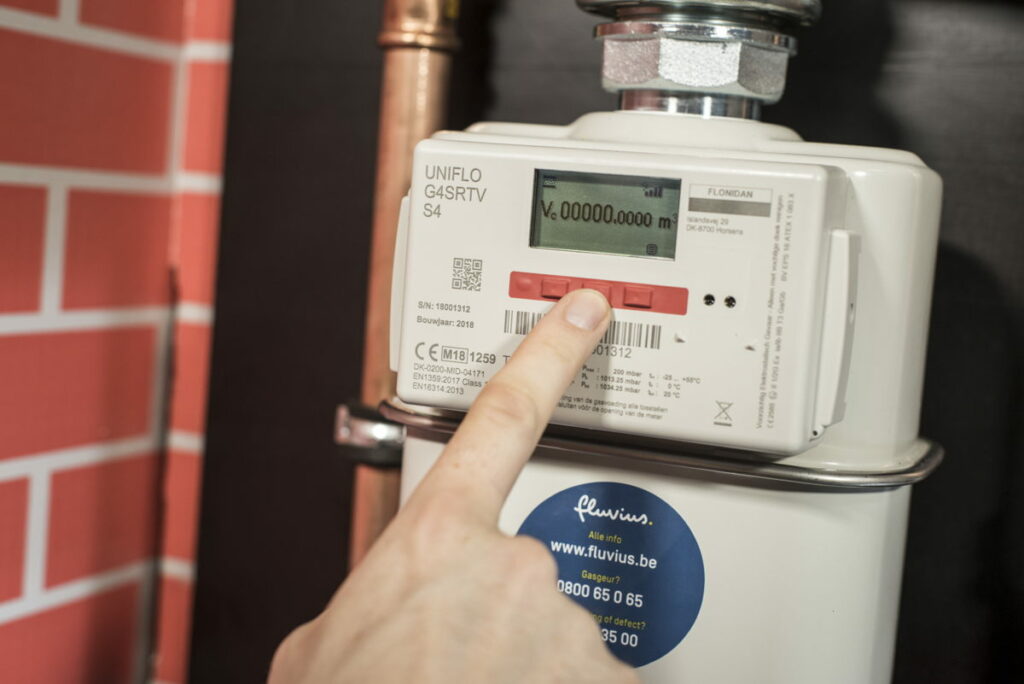Households in Flanders are increasingly lowering and monitoring their gas consumption, particularly in February, mainly as a result of the hike in energy prices.
The energy crisis has already impacted the cost of goods, business activities and now also the usage of households in Flanders. Compared to January and February 2021, they consumed 5% and 16% less respectively, according to a data analysis by the network company Fluvius using the anonymous data from 100,000 digital gas meters.
"The decrease in gas consumption can be observed for every type of customer: families with a new home and people with an older home or protected customers pushed their gas consumption down significantly," a statement from the company read.
Noticably, this comparison already takes into account the temperature differences between the two years, because in both months, it was generally colder in 2021 than this year.
"In absolute figures – i.e. not smoothed out by temperature differences – gas consumption in January fell from an average of 95 to 80 kilowatt hours per day and in February from an average of 82.5 to 67.5 kilowatt hours per day."
Although Fluvius does not yet have complete figures for March 2022, it stated that, there too, a similar decrease is noticeable.
Related News
- Paying double for energy: Rent indexation squeezes struggling tenants
- Why are prices rising? Europe’s energy crisis explained
In light of the massive hike in gas and electricty prices, Belgium took various measures to cushion the effect on households and businesses, including a reduction in VAT on electricity and gas, lower excise duties on diesel and petrol and a heating oil bonus, as well as an extension of the broad social rate.
European Commission President Ursula von der Leyen also hinted earlier this month that a cap on gas prices that aims to curb high energy prices in the European Union should be on the table.
Actively monitoring usage
Fluvius stated that it is likely people either set their thermostat one degree lower, are heating less at night, or are closing or lowering some of the radiator valves in the house to minimise their gas usage.
Although people living in newer homes also decreased their consumption, Fluvius stressed that the data gathered highlighted that "thorough insulation offers very good protection against rising energy prices."
The rise in energy prices also resulted in large rise in the number of customers with digital meters who actively consult their digital consumption information, as unlike with old mechanical gas meters, these keep detailed records of gas consumption, and can even compare real gas consumption on a monthly basis.
"The number of households actively doing this has risen by more than 30,000 over the past two months, from 115,000 at the beginning of the year to 146,000 today," the company stated, adding that this too is a "good indication that households are actively looking for information about their energy consumption and how to reduce it."

